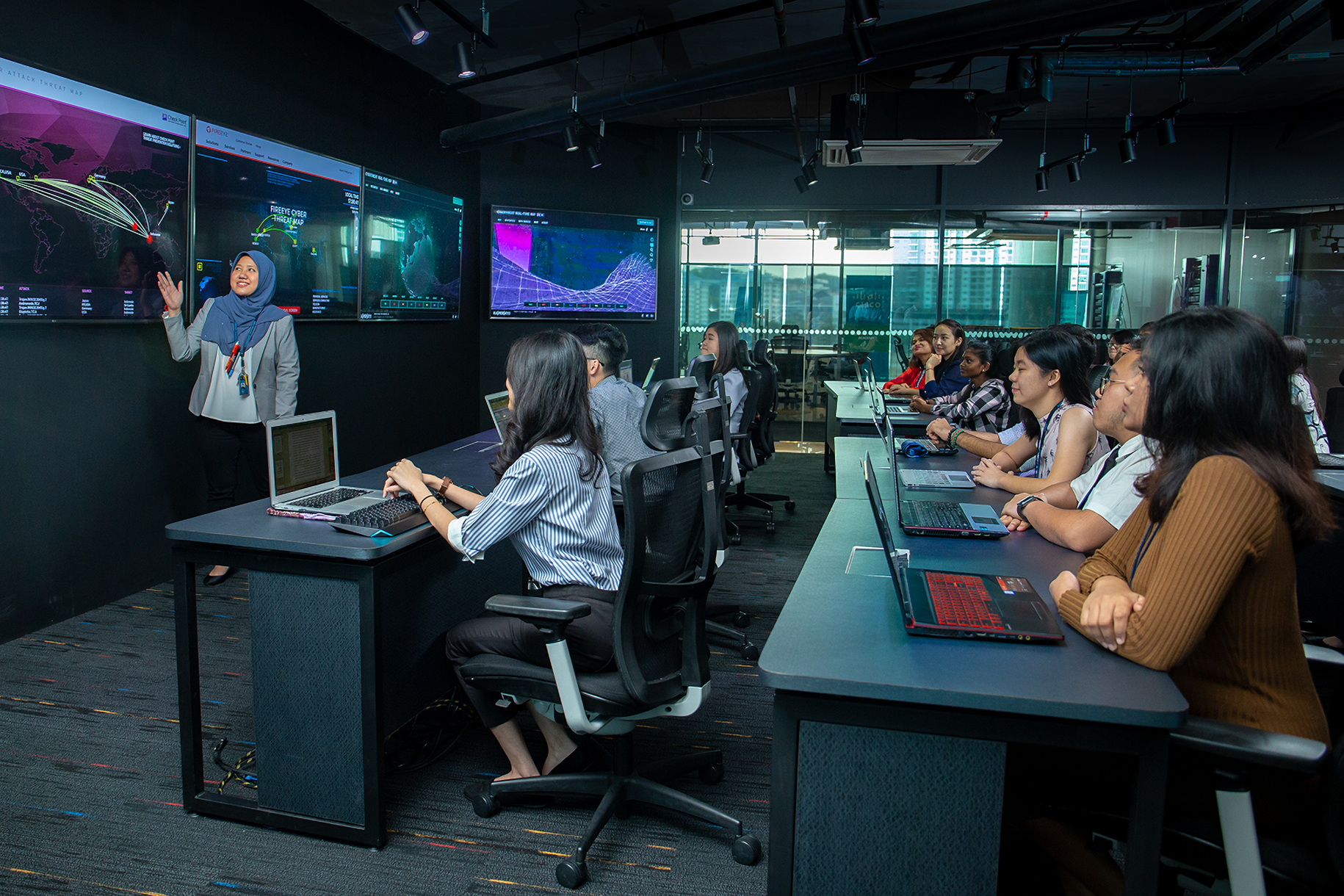
IN Malaysia, aspects of cybersecurity are the responsibilities of multiple government agencies, including CyberSecurity Malaysia (CSM) — a national cybersecurity specialist agency under the Communications and Digital Ministry.
According to Communications and Digital Minister Fahmi Fadzil, the government has announced plans to establish the Malaysian Cybersecurity Commission as part of efforts to improve Malaysia’s cybersecurity.
The establishment of a Cybersecurity Commission has the potential to be a positive step, as it demonstrates a proactive approach in tackling cybersecurity challenges in Malaysia.
A dedicated commission can centralise efforts, streamline decision-making, and ensure better coordination among various government agencies, industry stakeholders, as well as cybersecurity experts.
“This can lead to more effective and efficient responses to cyber threats, “ says Asia Pacific University of Technology and Innovation (APU) Forensic and Cyber Security Research Centre (FSEC) head Dr Julia Juremi.
“The commission can play a crucial role in developing comprehensive cybersecurity policies and frameworks tailored to the country’s specific needs.”
Nevertheless, establishing an effective cybersecurity commission requires careful planning, allocation of resources, and forming the necessary technical expertise.
She explains that setting up a national cybersecurity commission may not directly solve the problem since Malaysia lacks specialists in the cybersecurity sector, and this manpower shortage requires a comprehensive and collaborative approach involving government, academia, industry, and other relevant stakeholders.
Nonetheless, the commission can contribute to supporting the cybersecurity ecosystem and promoting talent retention by offering competitive salaries, creating opportunities for career advancement, and fostering a conducive work environment.
“These measures will help cultivate a vibrant cybersecurity ecosystem and ensure the continued growth and retention of skilled professionals in the field,” she elaborates.
“The commission also can play a role in fostering public-private partnerships, allowing this collaborative effort to utilise resources, expertise, and infrastructure to effectively tackle the shortage of cybersecurity professionals.”
The establishment of the commission has the potential to open up job opportunities for APU students who enroll in BSc (Hons) Information Technology with a Specialism in Information Systems Security, BSc (Hons) Computer Science (Cyber Security), BSc (Hons) Computer Science with a specialism in Digital Forensics, and Master of Science in Cyber Security.
As the commission prioritises the enhancement of the nation’s cybersecurity posture, there will be a need for a proficient workforce to support its initiatives.
For instance, if the commission actively engages in the development of cybersecurity policies and regulations in Malaysia, it could create a greater demand for professionals capable of analysing, interpreting, and implementing these policies within organisations.
To facilitate such an initiative, the commission may give priority to cybersecurity awareness campaigns and educational programmes aimed at increasing awareness and advocating for best practices.
This could result in opportunities for APU students to contribute as trainers, educators, or consultants.
Additionally, with a dedicated commission in place, there may be a greater emphasis on incident response capabilities and security operations.
As a result, this could potentially create job opportunities for cybersecurity students who have obtained knowledge and skills in incident response, threat detection, and security monitoring through the modules covered in their programmes.

Why SPM grads should major in cybersecurity
Choosing a cybersecurity major can offer several advantages for the national exam — Sijil Pelajaran Malaysia (SPM) — graduates.
Since cyber threats are constantly evolving, the demand for cybersecurity experts remains steady and offers excellent career growth prospects, with opportunities for specialisation and advancement into leadership positions.
Cybersecurity graduates also have the advantage of diverse career pathways, with opportunities to work in fields such as network security, incident response, penetration testing, cybersecurity consulting, risk management, digital forensics, secure software development, and numerous other areas.
This versatility allows students to align their interests and skills with the specific career path that appeals to them.
It is also worth noting that salaries in the cybersecurity field are typically competitive due to the high demand for skilled professionals.
Given the specialised nature of the work and the critical role they play in protecting digital assets, cybersecurity roles often offer attractive compensation packages.
As Malaysia’s Premier Digital Tech University, APU provides a well-rounded approach to cybersecurity education by offering a balanced curriculum that encompasses both theoretical knowledge and practical content.
At APU, students benefit from the expertise of faculty members who possess industry experience, research publications, and professional certifications in cybersecurity. This enables them to gain valuable insights and receive guidance from knowledgeable instructors.
APU’s cybersecurity module gains substantial value from its outstanding collaborations with industry partners and recognition from industry-leading certifications.
These collaborations allow APU to continuously assess its curriculum, ensuring that the knowledge imparted remains current and aligned with industry needs.
Additionally, students can use cutting-edge technologies, cybersecurity labs, and software tools, resulting in an enhanced learning experience and the ability to engage in practical, hands-on cybersecurity training.
All programmes adhere to international curriculum standards and industry requirements, and impart real-world cybersecurity practices, producing a successful track record of employable graduates.
Cybersecurity Talent Zone (CSTZ) fortifies cybersecurity skills
CyberSecurity Talent Zone (CSTZ) — the nation’s first state-of-the-art infrastructure and sophisticated learning space — incorporates military-grade real-time cybersecurity monitoring systems, research centres and simulation infrastructure.
The full-fledged Cyber Threats Simulation and Response Centre (or Cyber Range) and Security Operations Centre (SOC) stream live monitoring data extracted from a database of cyber-attacks worldwide, providing a platform for hands-on practice on ethical hacking and incident response to nurture security professionals.
Upon completion of 50 hours manning the SOC and successfully completing all activities in an assessment, students get a certificate of completion from APU’s industry partner TecForte.
Graduates of APU’s digital security programmes have become part of the global digital security workforce.
According to the latest Annual Graduate Tracer Study by the Higher Education Ministry, 100% of its graduates have been employed upon graduation.
APU graduates are equipped with abilities to develop related skills and background such as evaluating design paradigms, languages, algorithms and demonstrating techniques to develop complex software systems and exploiting new technologies and applications.

To find out more about APU's cybersecurity courses and facilities, go to www.apu.edu.my, call 03-8996 1000/1300 888 278 (toll-free) or email info@apu.edu.my.
You can also read this article HERE.
News & Happening
Download e-Brochures
Intake Calendar
Want to know more ?
Let’s Connect